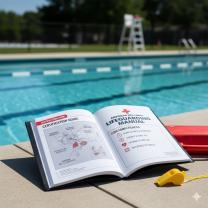How to learn English well in college?
Learning English well in college, whether as a native or non-native English speaker, requires dedication, effective strategies, and consistent practice. Here are some learning strategies to help you excel in English at the college level:
Engage Actively in Class:
- Attend all your English classes and actively participate in discussions and activities.
- Listen carefully to your instructor and take notes.
- Ask questions and seek clarification when you don't understand something.
Build Strong Foundations:
- Ensure your grammar, vocabulary, and writing skills are solid. If not, consider taking remedial courses or seeking extra help.
- Review basic English concepts to strengthen your understanding.
Read Widely:
- Read a variety of materials, including books, newspapers, magazines, and academic articles.
- Challenge yourself with different genres and styles of writing to improve comprehension and vocabulary.
Write Regularly:
- Practice writing essays, reports, and creative pieces.
- Seek feedback from instructors or writing centers to improve your writing skills.
- Edit and revise your work to enhance clarity and coherence.
Expand Your Vocabulary:
- Learn new words and phrases daily.
- Keep a vocabulary journal to record and review new terms.
- Use flashcards or language apps to reinforce your vocabulary.
Immerse Yourself:
- Try to immerse yourself in the English language as much as possible. Watch English-language movies, TV shows, and videos, and listen to English music and podcasts.
- Consider participating in language exchange programs to practice conversational English with native speakers.
Grammar Practice:
- Dedicate time to grammar exercises and practice to improve your accuracy and fluency.
- Use grammar workbooks, online resources, or language apps for practice.
Peer Groups and Study Partners:
- Collaborate with classmates to discuss assignments, share study tips, and practice speaking English.
- Form study groups for mutual support and feedback.
Utilize College Resources:
- Take advantage of college resources, such as writing centers, language labs, and tutoring services for additional help and guidance.
Time Management:
- Plan your study schedule effectively. Allocate specific time slots for reading, writing, and other language-related tasks.
- Avoid procrastination and stay organized.
Cultural Immersion:
- Learn about the culture and context associated with the English language. Understanding cultural nuances can improve your language skills and communication.
Use Technology:
- Explore language learning apps and software that can assist with vocabulary, grammar, and pronunciation.
- Join online forums or communities related to language learning for additional resources and support.
Self-Assessment:
- Regularly assess your language skills to track your progress.
- Take practice tests and quizzes to identify areas that need improvement.
Stay Motivated:
- Set realistic goals for language improvement and reward yourself for reaching milestones.
- Find intrinsic motivation by connecting your language learning to personal interests or career goals.
Seek Feedback:
- Be open to feedback from instructors and peers to identify areas for improvement.
Remember that language learning is a gradual process, and consistency is key. With dedication and regular practice, you can excel in English at the college level and continue to improve your language skills over time.
Strategies for Learning English Effectively in College
Here are some strategies for learning English effectively in college:
- Set realistic goals. Don't try to learn everything at once. Set small, achievable goals for yourself, such as learning a certain number of new words each week or improving your grammar skills by a certain date.
- Find a learning method that works for you. Some people learn best by listening, while others learn best by reading or writing. Experiment with different learning methods to find one that you enjoy and that helps you to learn effectively.
- Immerse yourself in the English language. Surround yourself with English as much as possible. Watch English movies and TV shows, listen to English music, and read English books and articles. You can also try to find opportunities to speak English with native speakers.
- Don't be afraid to make mistakes. Everyone makes mistakes when they are learning a new language. The important thing is to learn from your mistakes and keep practicing.
- Seek help when you need it. There are many resources available to help you learn English effectively in college. Talk to your professors, classmates, or other English speakers for help with your grammar, pronunciation, or vocabulary. You can also take advantage of language support services on your campus.
Immersive Learning Environments for English Proficiency
Immersive learning environments are those in which you are surrounded by the language you are learning. This can be a very effective way to learn English, as it allows you to practice your language skills in real-world contexts.
Here are some examples of immersive learning environments for English proficiency:
- English language schools: English language schools offer immersive learning programs that can help you to improve your English skills quickly. These programs typically involve living and studying with other English language learners.
- Study abroad programs: Studying abroad in an English-speaking country is another great way to immerse yourself in the language and culture. This can be a life-changing experience that will help you to develop your English skills and become more confident in using English.
- Online language learning platforms: There are a number of online language learning platforms that offer immersive learning experiences. These platforms typically use a variety of activities, such as games, simulations, and conversations with native speakers, to help you learn English effectively.
Language Resources and Support Services on College Campuses
Many college campuses offer language resources and support services to help students learn English. These resources and services may include:
- English language learning centers: English language learning centers offer a variety of resources and services to help students learn English, such as tutoring, workshops, and conversation groups.
- Writing centers: Writing centers can help students with their writing skills, including grammar, punctuation, and style.
- Peer tutoring: Peer tutoring can be a great way to get help from other students who have already mastered the English language.
- Online resources: Many colleges and universities offer online resources to help students learn English, such as grammar checkers, vocabulary lists, and practice exercises.
Balancing Academic Studies with English Language Development
Balancing academic studies with English language development can be challenging, but it is possible. Here are some tips:
- Manage your time wisely. Create a schedule that allows you to time for your academic studies as well as for English language development activities.
- Prioritize your tasks. Decide which tasks are most important and focus on those first.
- Don't be afraid to ask for help. Talk to your professors, classmates, or other English speakers for help with your English language development.
- Take breaks. It is important to take breaks when you are studying, especially if you are feeling overwhelmed.
Preparing for English Proficiency Exams in College
If you are planning to take an English proficiency exam, it is important to start preparing early. Here are some tips:
- Familiarize yourself with the exam format and content. Each English proficiency exam has its own unique format and content. It is important to familiarize yourself with the exam you will be taking so that you know what to expect.
- Practice taking practice tests. The best way to prepare for an English proficiency exam is to practice taking practice tests. This will help you to get familiar with the test format and content, and to identify any areas where you need to improve.
- Get help from a tutor or English language instructor. If you are struggling to prepare for an English proficiency exam on your own, consider getting help from a tutor or English language instructor. They can help you to identify your weaknesses and develop a study plan.
Learning English in college can be a challenging but rewarding experience. By following the tips above, you can set yourself up for success.











